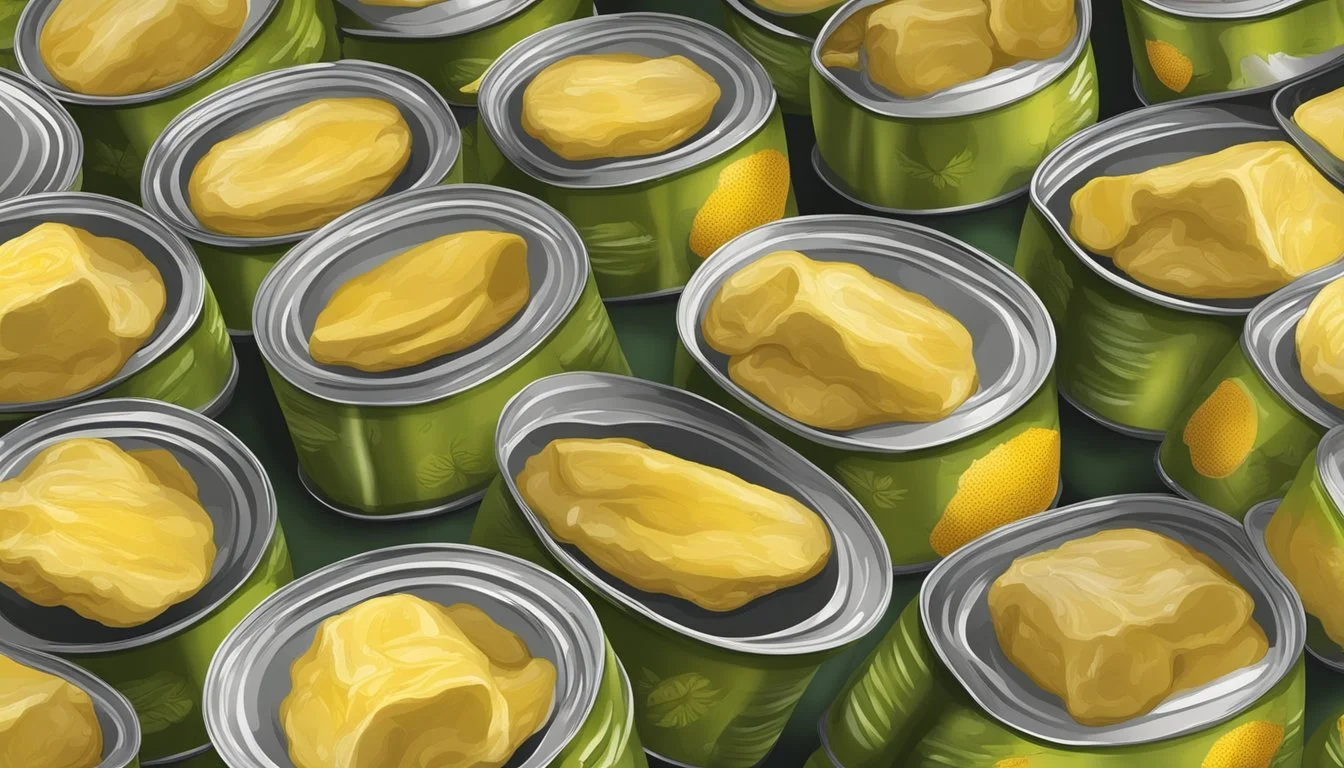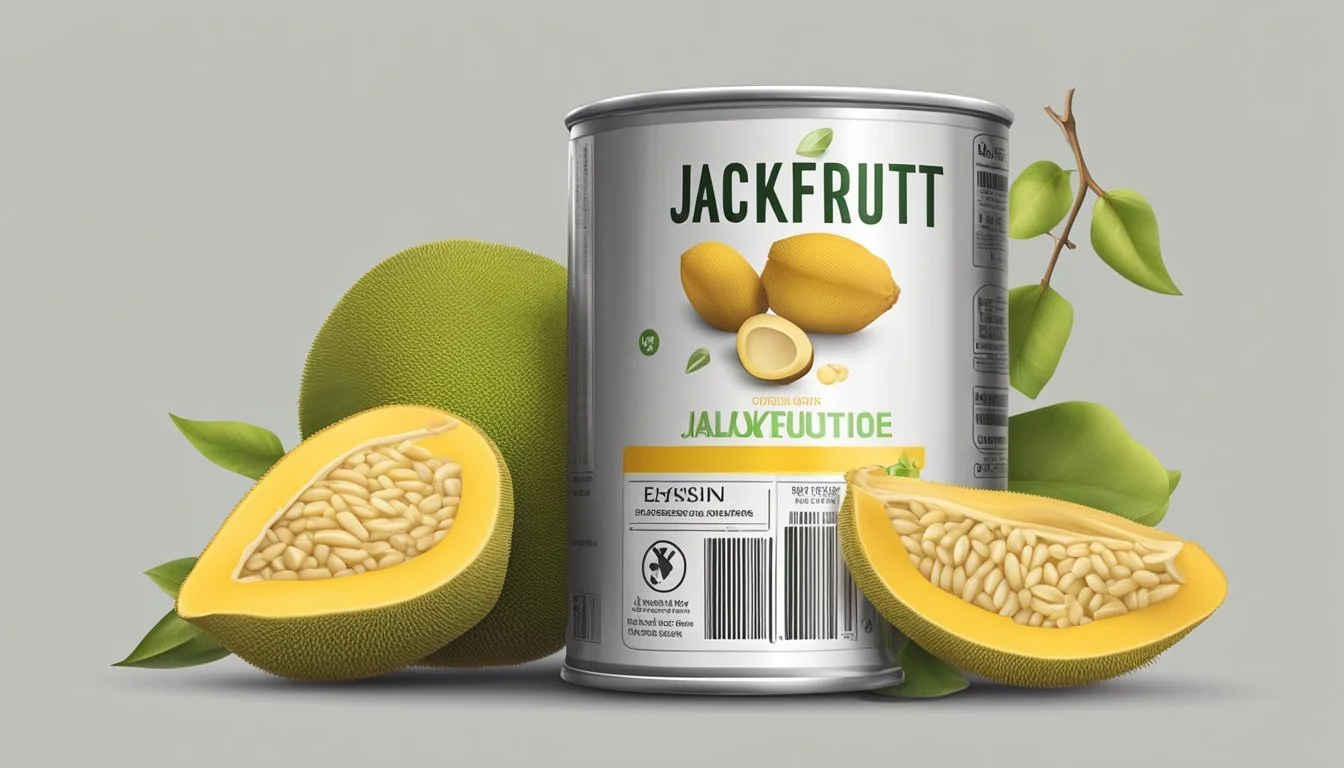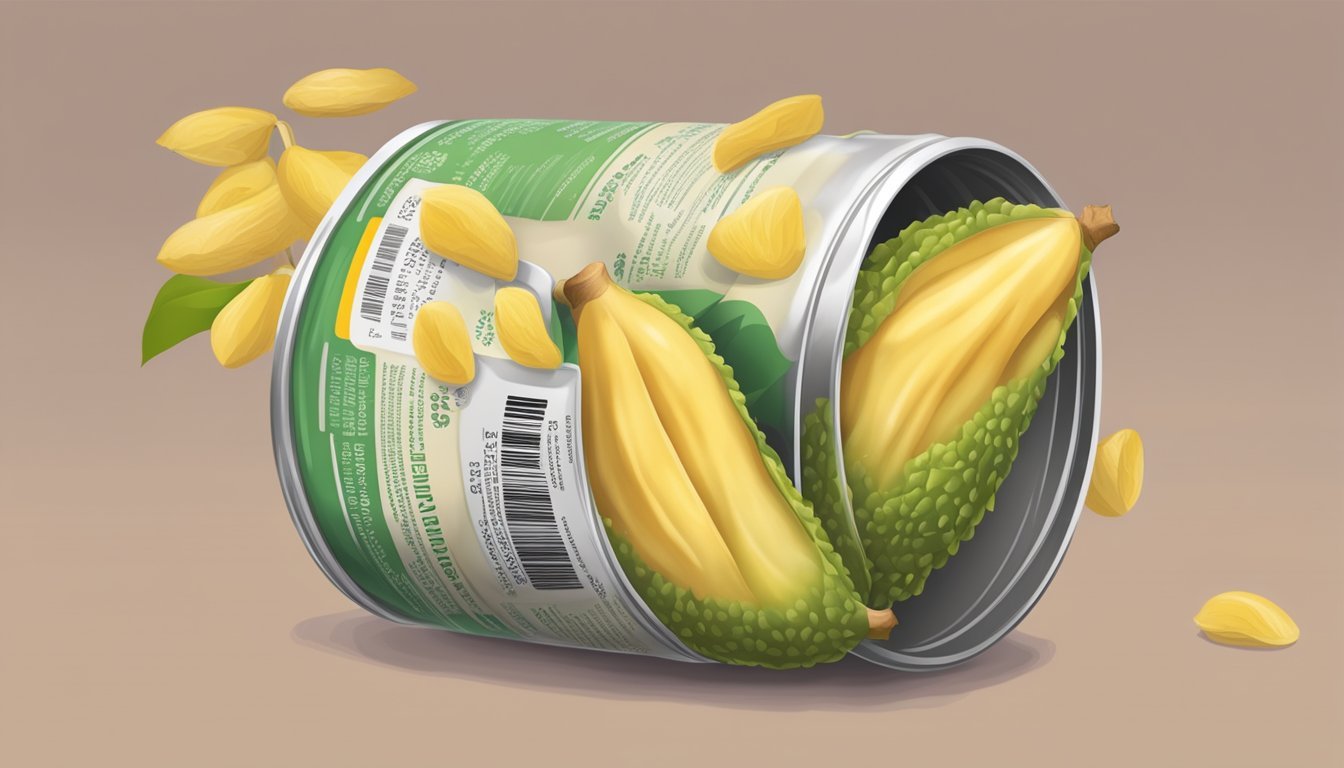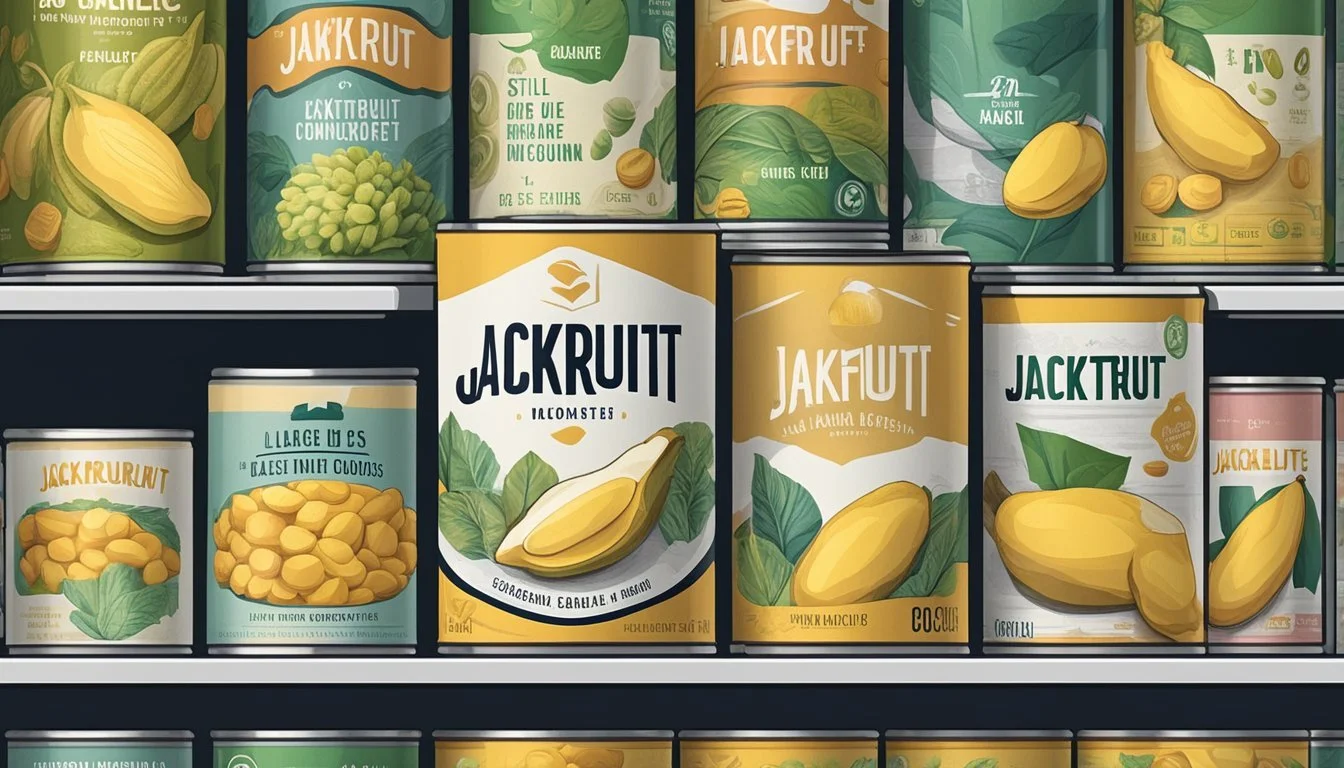Does Canned Jackfruit Expire?
Shelf Life and Storage Tips
Canned jackfruit is a popular choice for those looking to enjoy the tropical fruit year-round without the hassle of prepping fresh jackfruit. While the expiration date on canned jackfruit offers a guideline, it is important to note that this date serves primarily as an indicator of when the manufacturer estimates the product will start to lose quality. Canned jackfruit, if stored properly and unopened, maintains its quality for about 3-4 years from the date of manufacture.
When considering the safety and quality of canned jackfruit, it is crucial to keep an eye on signs of spoilage. Although the expiration date provides useful information, canned goods often remain safe to eat beyond this date if the cans are undamaged and stored correctly. To ensure food safety, always inspect the can for rust, dents, or any signs of leakage before consuming.
Once opened, the shelf life of canned jackfruit changes significantly. It should be stored in the refrigerator and consumed within a few days. For longer preservation, freezing the opened jackfruit can extend its usability for up to a month. These practices help maintain both the flavor and nutritional value, ensuring a delicious addition to your meals.
The Basics of Canned Jackfruit
Canned jackfruit is a convenient way to enjoy this tropical fruit, known for its versatility in both sweet and savory dishes. Understanding what jackfruit is and how it compares to other canned fruits is essential for making the most of this ingredient.
What Is Jackfruit?
Jackfruit is a large tropical fruit native to South and Southeast Asia. It is notable for its size, often weighing up to 80 pounds. The interior contains bulbous pods of yellow flesh surrounded by fibrous material.
This fruit is rich in carbohydrates, proteins, and several vitamins, making it a nutritious choice. When young, jackfruit is often used as a meat substitute due to its texture, which resembles shredded meat when cooked. Ripe jackfruit is sweeter and is used in desserts and snacks.
Overview of Canned Fruit
Canned jackfruit is preserved in a brine or syrup, helping to maintain its taste and texture for extended periods. Unopened, it can last for 3-4 years when stored in a cool, dry place.
The process of canning involves sealing the fruit in airtight containers and heating to a temperature that destroys microorganisms. This ensures a long shelf life, making canned jackfruit a reliable pantry staple. However, it's important to inspect the can for rust, dents, or swelling before use.
Canned fruits, including jackfruit, provide convenience and extended usability compared to their fresh counterparts.
Determining the Shelf Life
Canned jackfruit can last a varying amount of time depending on whether it is commercially canned or home-canned. Factors such as storage conditions and expiration dates also play a crucial role in determining its shelf life.
Reading Expiration Dates
Canned jackfruit typically has a labeled expiration date. This date indicates the period during which the product retains its best quality.
Commercially canned jackfruit usually has a shelf life of 3-4 years if unopened and stored properly.
Home-canned jackfruit generally retains its quality for about 1 year and should ideally be used within 2 years.
It is important to note that expiration dates are often a guideline for quality, not safety, so the product may still be safe to consume past this date if there are no signs of spoilage.
Factors Affecting Shelf Life
Several elements can influence the shelf life of canned jackfruit:
Can Condition: Dents, rust, or swelling can indicate compromised integrity and may lead to spoilage.
Storage Conditions: Keeping canned jackfruit in a cool, dry place can extend its shelf life. Avoid direct sunlight and high temperatures.
Seal Integrity: Ensuring the can's seal is intact helps maintain the product's quality and longevity.
Proper storage and handling are essential to maximize the shelf life of canned jackfruit and ensure it remains safe to eat.
Commercially Canned vs. Home-Canned
There are noticeable differences between commercially canned and home-canned jackfruit in terms of shelf life:
Commercially canned jackfruit: Often processed with preservatives, it has a longer shelf life, typically lasting 3-4 years if unopened and stored correctly.
Home-canned jackfruit: Lacks the same level of preservatives and generally has a shorter shelf life. It maintains its quality for about 1 year and should be consumed within 2 years.
Both types of canned jackfruit should be checked for signs of deterioration, such as changes in color, texture, or odor, before consumption. Marking the canning date on home-canned jackfruit can help track its shelf life.
Storage Essentials for Canned Jackfruit
Proper storage techniques for canned jackfruit can significantly extend its shelf life and maintain its quality. Ensuring optimal conditions before and after opening the can will help preserve its flavor and nutritional value.
Optimal Storage Conditions
Canned jackfruit can last up to 3-4 years if stored correctly. Unopened cans should be kept in a cool, dry place such as a pantry. It is crucial to avoid storing the cans in areas with high humidity or temperature fluctuations.
Damaged or rusted cans should be discarded to avoid potential contamination. Always inspect for any dents or swelling, which can indicate compromised integrity.
Storage Tips Post-Opening
After opening, canned jackfruit should be transferred to an airtight container to prevent exposure to air and contaminants. Storing it in the fridge will help maintain its freshness.
Opened jackfruit should be consumed within 7 days. Always check for off smells or changes in texture before use. Properly sealing the container helps retain the fruit’s moisture and flavor.
The Role of Temperature and Light
Temperature plays a significant role in preserving canned jackfruit. Ideally, it should be kept at a steady temperature, free from extreme heat or cold. Light exposure can also negatively impact the quality, so storing it in a dark place is beneficial.
Maintaining a consistent environment helps prevent spoilage. Fluctuating temperatures can cause the can to expand and contract, possibly leading to leaks or compromised seals.
Recognizing Signs of Spoilage
Detecting spoilage in canned jackfruit helps ensure safety and avoid unpleasant experiences. Indicators of spoilage may include visual changes, unusual smells, and altered textures.
Visual Inspection
Visual cues are crucial in identifying spoiled canned jackfruit. Bulging cans signal bacterial activity, potentially indicating hazardous conditions. If the can appears rusty or leaking, it should be discarded immediately. Rust can penetrate the metal, leading to contamination.
When opened, check the jackfruit's color. Fresh canned jackfruit typically has a light, consistent hue. Any noticeable discoloration or the presence of mold spots is a clear sign of spoilage. Ensuring cans are stored properly can prevent these issues from developing over time.
Smell and Texture Assessment
Smell provides another reliable indicator of spoilage. A strong, unpleasant odor upon opening indicates the jackfruit is no longer safe to consume. Fresh jackfruit should have a mild, slightly sweet aroma.
Texture changes also signify spoilage. Instead of its usual firm but yielding texture, spoiled jackfruit may feel slimy or overly mushy. These alterations occur due to bacterial overgrowth or prolonged storage.
Always prioritize safety by discarding any canned jackfruit with these signs, even if it's not past its expiration date.
Safety and Health Implications
Properly storing and handling canned jackfruit is essential to prevent health risks like foodborne illnesses and contamination. Consumers should be aware of the steps necessary to ensure both safety and nutritional integrity.
Understanding Foodborne Illnesses
Foodborne illnesses can be a serious concern with improperly stored or expired canned goods. One significant risk is botulism, a potentially fatal illness caused by Clostridium botulinum bacteria. The bacteria thrive in low-oxygen environments, like improperly sealed cans, producing a toxin. Symptoms of botulism include nausea, vomiting, and paralysis.
Canned jackfruit can also harbor other bacteria such as Salmonella and Listeria if not stored correctly. These pathogens can lead to severe gastrointestinal issues. Regularly inspecting cans for damages or bulging, which can indicate contamination, is crucial in preventing these illnesses.
Preventing Contamination
To avoid contamination, canned jackfruit should be stored in a cool, dry place with a temperature below 75°F. High temperatures can cause the can to deteriorate, increasing the risk of contamination. It's also important to check the can's integrity before use. Look for rust, dents, or leaks, as these can compromise the safety of the product.
Once opened, any unused portion of the jackfruit should be transferred to a sealed, clean container and refrigerated. Consume within a few days to maintain its safety. Always use clean utensils to avoid introducing bacteria into the can. Following these precautions can significantly reduce health risks and ensure the jackfruit remains safe to eat.
Utilizing Expired Canned Jackfruit
Expired canned jackfruit can still be useful if certain guidelines are followed. Creative culinary uses and proper assessment of the can's condition are essential.
Creative Cooking Ideas
Expired canned jackfruit can still shine in various recipes if the can is in good condition. Use it as a meat substitute in vegan dishes like jackfruit tacos or pulled jackfruit sandwiches.
Jackfruit curry can be an exciting way to add texture and flavor to your meal. Also, consider making jackfruit stir-fry with fresh vegetables and soy sauce.
In sweet dishes, blend it into a smoothie or bake it into a fruit tart. The versatility of jackfruit means that even slightly past its date, it can offer numerous benefits in cooking.
When to Use Expired Cans
Check the condition of the can before use. If there are signs of rust, bulging, or leakage, it's unsafe to consume. Always smell and taste a small amount to ensure there is no off odor or flavor.
Use expired canned jackfruit primarily in dishes where it can be cooked thoroughly, as heat can kill off potential bacteria.
For food safety, avoid raw consumption of expired jackfruit. Store the remainder properly—either refrigerated if it has been opened or in a cool, dark place.
Expired cans might still offer convenience and nutrition but should always be used with caution.
Nutritional Overview
Canned jackfruit retains many of the original nutrients found in fresh jackfruit, making it a valuable dietary option. Below, we explore its health benefits and how it compares to its fresh counterpart.
Health Benefits
Canned jackfruit is notable for its nutritional value, particularly its vitamin and mineral content. A single cup (165g) of jackfruit provides approximately 157 calories, 2.8g of protein, 38.3g of carbohydrates, and 1.1g of fat. It is especially rich in vitamin C and potassium, which are crucial for immune function and heart health, respectively.
In addition to its macronutrient profile, canned jackfruit offers dietary fiber, which aids digestion and supports gut health. The canning process generally retains these key nutrients, ensuring it remains a nutritious option. Furthermore, the protein content, although modest, makes it a good component of a balanced diet.
Comparison with Fresh Jackfruit
When comparing canned jackfruit with fresh jackfruit, there are a few key differences in their nutritional profiles. Fresh jackfruit tends to offer higher levels of certain vitamins and minerals due to the lack of processing.
Specifically, vitamin C content may be somewhat reduced in canned versions due to the heat used in canning. Despite this, canned jackfruit maintains a significant amount of the critical nutrients, making it a practical alternative for those without access to fresh produce.
Moreover, canned jackfruit is often harvested slightly underripe, resulting in less natural sweetness but a better capacity to absorb flavors from dishes it is cooked with. This aspect makes it a versatile ingredient in various culinary applications.
In essence, while fresh jackfruit might edge out in terms of maximum nutrient retention, canned jackfruit remains a highly nutritious, convenient, and economical choice.







